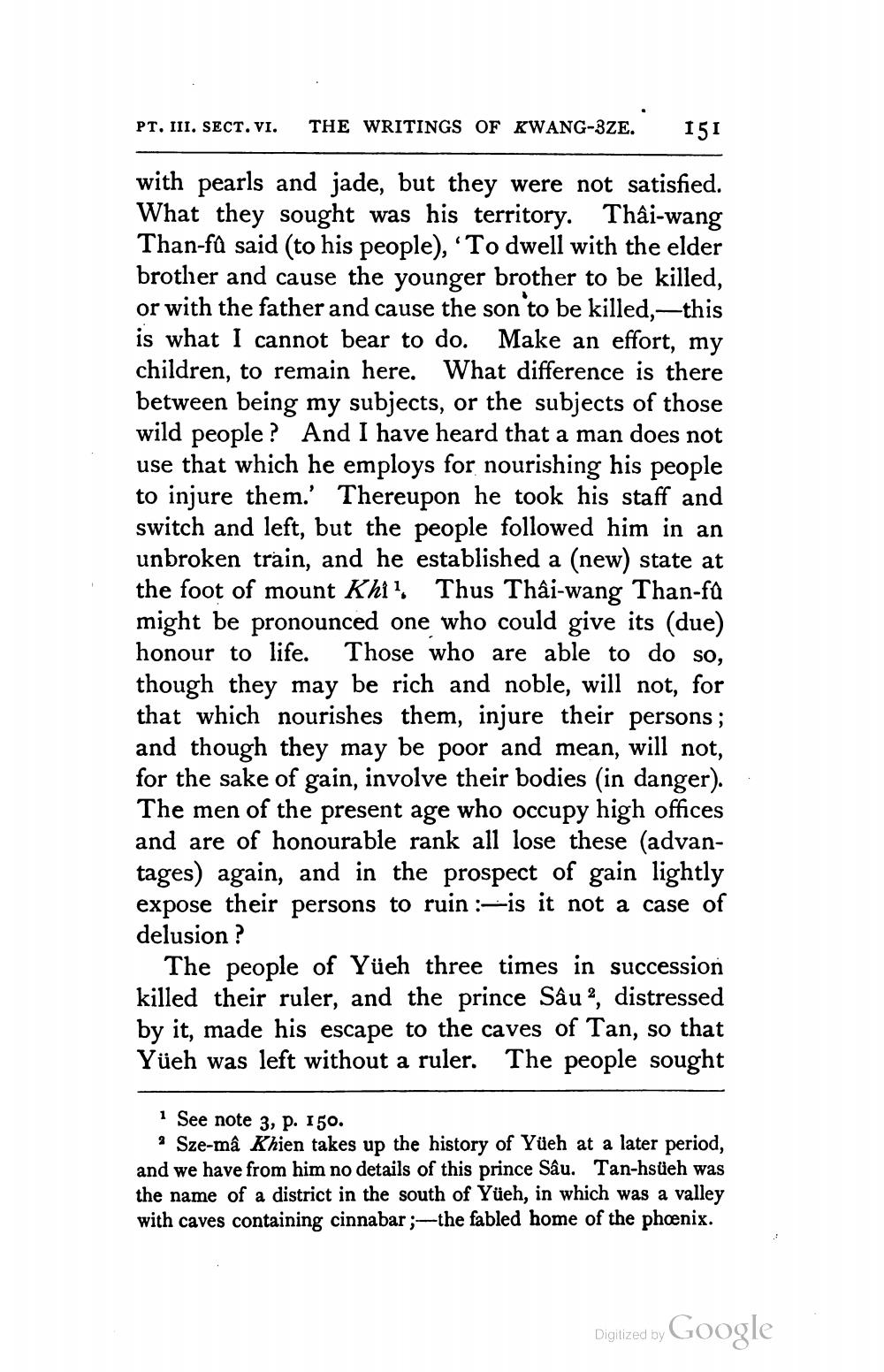________________
PT. III. SECT. VI.
THE WRITINGS OF KWANG-BZE.
151
with pearls and jade, but they were not satisfied. What they sought was his territory. Thậi-wang
Than-fù said (to his people), 'To dwell with the elder brother and cause the younger brother to be killed, or with the father and cause the son to be killed,—this is what I cannot bear to do. Make an effort, my children, to remain here. What difference is there between being my subjects, or the subjects of those wild people? And I have heard that a man does not use that which he employs for nourishing his people to injure them.' Thereupon he took his staff and switch and left, but the people followed him in an unbroken train, and he established a (new) state at the foot of mount Khi. Thus Thâi-wang Than-fa might be pronounced one who could give its (due) honour to life. Those who are able to do so, though they may be rich and noble, will not, for that which nourishes them, injure their persons; and though they may be poor and mean, will not, for the sake of gain, involve their bodies (in danger). The men of the present age who occupy high offices and are of honourable rank all lose these (advantages) again, and in the prospect of gain lightly expose their persons to ruin :-is it not a case of delusion ?
The people of Yüeh three times in succession killed their ruler, and the prince Sâu?, distressed by it, made his escape to the caves of Tan, so that Yüeh was left without a ruler. The people sought
1 See note 3, p. 150.
Sze-mâ Khien takes up the history of Yüeh at a later period, and we have from him no details of this prince Sâu. Tan-hsüeh was the name of a district in the south of Yüeh, in which was a valley with caves containing cinnabar:--the fabled home of the phoenix.
Digitized by Google




